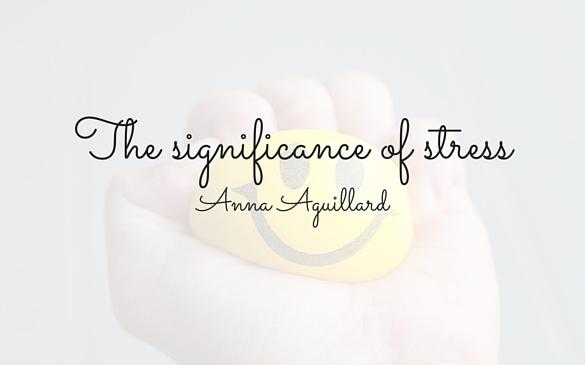By: Anna Aguillard, Senior Writer
With full course loads, internship applications and grad school tests to take, even the word “anxiety” can make a Wofford student feel anxious. Being a part of the small, close-knit Wofford community often brings even more stress: not only are we students struggling to manage our own problems, we’re also experiencing the problems of the people who closely surround us.
At Wofford, unlike at large schools, everyone knows each other; in knowing each other, we can’t help but care about each other’s lives. When something happens to one person on campus, we all feel the effects in some way, whether positive or negative. When a Wofford student wins Jeopardy eight times in a row, we each feel proud. However, this strong empathy works both ways: when we lose one Wofford student, we each lose a classmate, a friend or a friend of a friend. On a campus like ours, one person’s suffering is everyone’s suffering.
Coupled with the high-stress environment on our own campus is the unavoidable feeling that these days, the world is a more and more overwhelming place. Each day, something beyond our control happens to someone in the world, and when we watch the news, we empathetically feel his or her pain and suffering. Take the recent attacks in Paris: we each remember the exact place we were when we heard about them, and we remember the sobering, sinking feeling and lasting unrest. Even those of us who weren’t affected by the news still had a close friend who we saw suffering.
Now, more than ever, it is important for students to take control of their mental health. It’s not even a choice – it’s a necessary part of being a functional human being. While movements have grown across the nation to raise awareness for mental health, there is still some stigma attached to the term – Google image search “mental health,” and the first results are images of lone figures curled up in the fetal position. Students would rather tell their friends that they are going to the nurse, rather than admit that they have an appointment with a counselor.
This needs to change. 25 percent of college students experience a mental health disorder. 66 percent of struggling students don’t seek help. Suicide is the second leading cause of death on college campuses, and one that hits close to home with us all. Mental health is a thing, and it’s taken way too long for us to realize it.
Wofford’s Wellness Center is a great (and free) resource open to students to help address and combat the mental distresses that some of us may face. Perry Henson, Kellie Buckner and Dean Wallace all take individual appointments, which can be made either by calling them directly or through the online scheduling program. The trained counseling staff can help students handle everything from time management stress to family concerns, disordered eating to alcohol misuse and self-esteem issues to anxiety or depression. Beyond trained professionals, each student must play a role in combating mental disease, too – in the smallest way, the least we can do is not add to someone’s stress. In the largest way, we can encourage a friend to seek help.
As important as paying attention to our mental health is, we must remember: a mental illness is not a crutch. It is not something to pull out when we are too lazy to finish a paper, or so excited by the release of Aziz Ansari’s new Netflix series that we want to skip class. Mental diseases are serious diseases – just like someone wouldn’t fake a lifelong health issue, students should never fake a mental illness.
However, if you do find yourself overwhelmed, remember to stop and remember that your brain, like your legs, is only capable of carrying so much weight. Sometimes, overloading your brain with stress in order to achieve a goal actually can prevent you from achieving that goal. The health of your brain is way more important than a bad test grade, or an overheard snide remark– treat it that way.






























